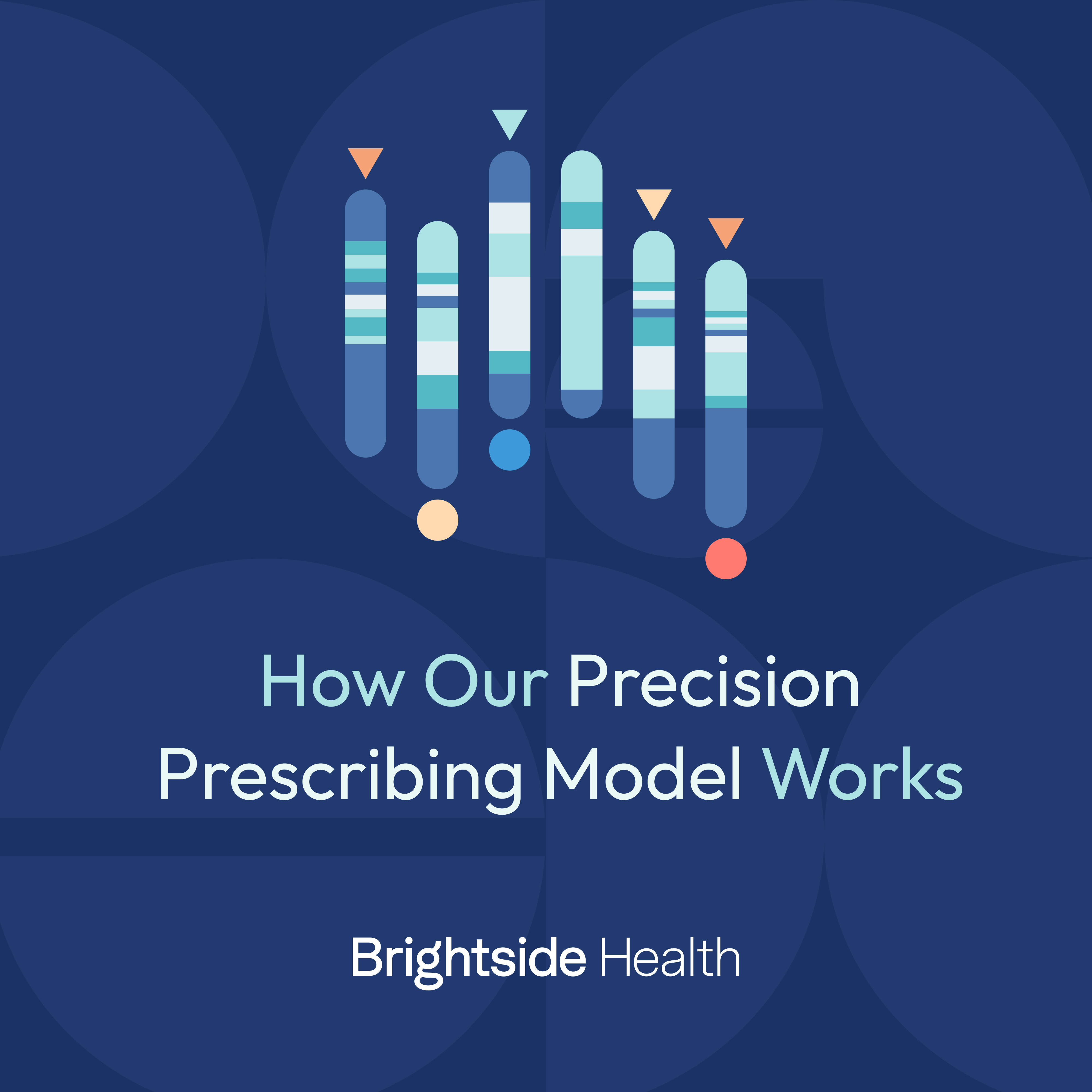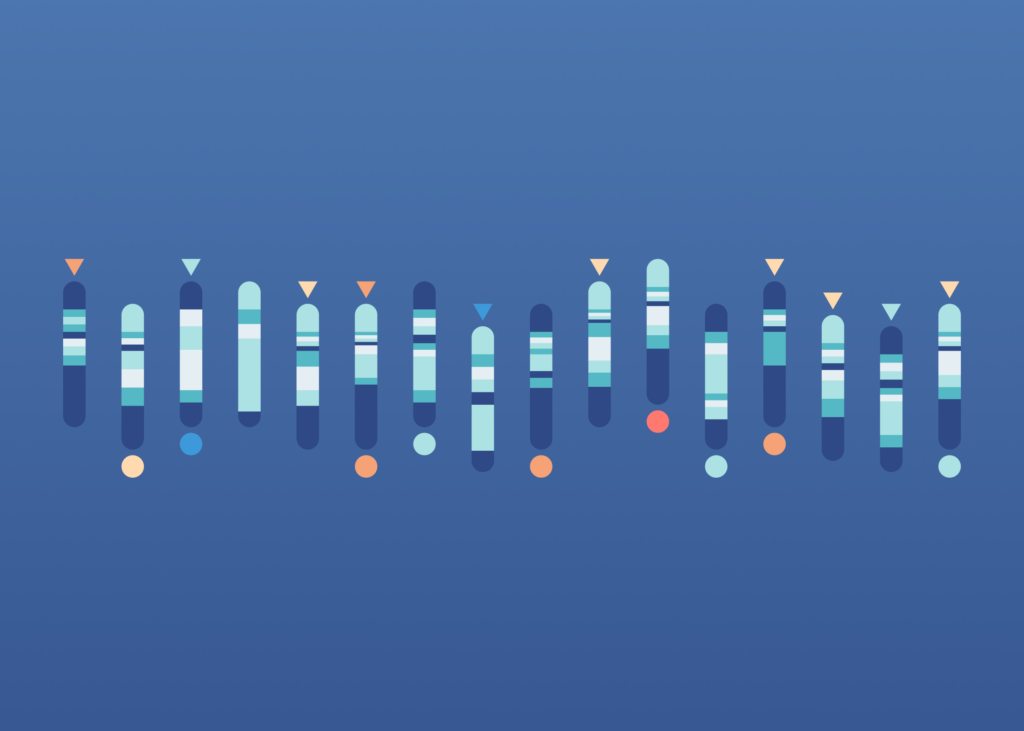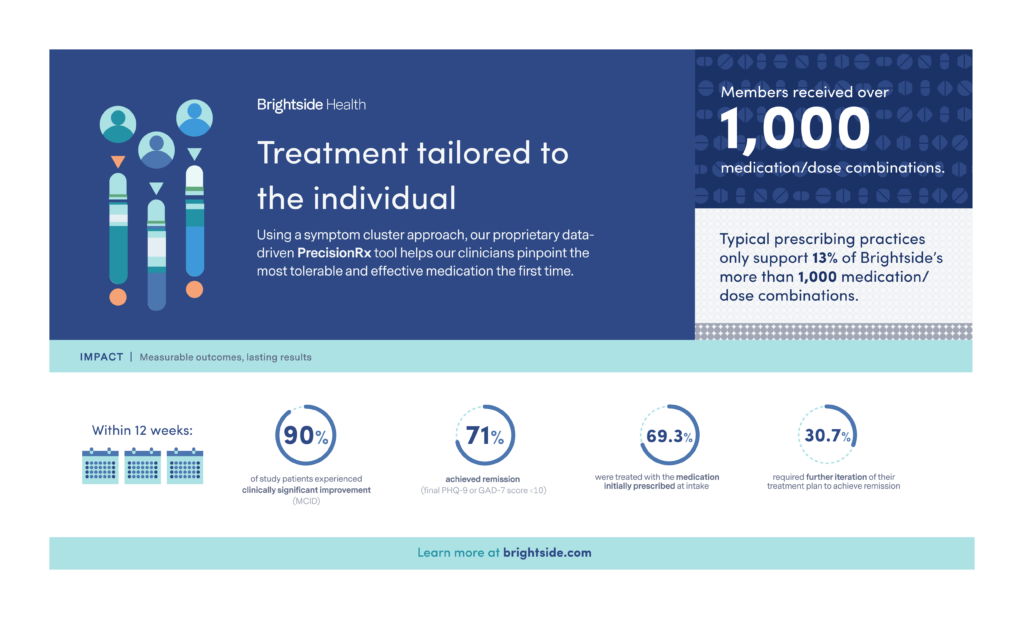Written by Shannon,
Brightside Health
3 Minute Read

Psychiatric medications can meaningfully improve quality of life for many patients. But taking a trial-and-error approach to antidepressant selection can yield suboptimal results. For example, a single antidepressant is only effective about 35% of the time.
Through precision and personalization, we can do better. Knowing that the same condition can present with different and varied symptoms from one individual to another, we’ve made significant investments in technology and data science to improve accuracy in treatment selection and thus optimize clinical outcomes. Our providers use our proprietary clinical decision support system, PrecisionRx, to recommend the medication most likely to be tolerable and effective for a given individual.
The precision approach
Technology-enabled symptom-cluster analysis, along with our patient monitoring allows us to do better than guess and check. Instead of longer waiting periods after an initial prescription to check in with patients, our remote patient monitoring and communication capabilities surface dozens of data points to providers before, during, and in-between visits. These data points help clinicians tailor their prescribing decisions to each individual—a practice we refer to as precision prescribing.

Our AI-driven decision support helps clinicians get each individual’s treatment right the first time. PrecisionRx analyzes over 100 data points about an individual to help personalize treatment plans: typical prescribing practices only support 13% of Brightside’s more than 1,000 medication/dose combinations. By using machine learning models to predict which medication will be most tolerable and effective for each patient, we can empower clinicians to make more informed treatment decisions across the diagnostic spectrum. This can also include patients with severe, complex, or acute conditions.
At intake, 71% of our patients need help with three or more conditions, 75% come to us with severe or moderately severe depression, and 50% start with some passive suicidal ideation.
How it works:
- When one of our psychiatric providers determines prescribing medication is appropriate, our proprietary PrecisionRx engine analyzes comprehensive clinical and demographic data and surfaces medication recommendations.
- Taking into consideration a formulary that excludes all controlled substances, PrecisionRx helps our clinicians craft a personalized treatment plan.
- Measurement-based outcomes are fed back into our models for continuous improvement.
The results:
In results published in the peer-reviewed journal BMC Psychiatry, our research team examined data from 6,248 Brightside Health patients receiving at least 12 weeks of treatment for depression and/or anxiety. Patients received a prescription for at least one psychiatric medication at the start of treatment. The study compared Patient Health Questionnaire-9 (PHQ-9) and GAD-7 scores at the start of treatment and again at two, four, six, eight, 10, and 12 weeks.
After 12 weeks, 90% of study patients experienced clinically significant improvement, and 71% achieved remission. Further, 69.3% of those were on the same treatment they were prescribed at intake, while 30.7% required further iteration of their treatment plan to achieve remission.
In short, PrecisionRx allows our clinicians to get it right the first time over 69% of the time — and intervene promptly to help the other 31%. In this way, we’re moving from guess-and-check prescribing to precision medicine.









